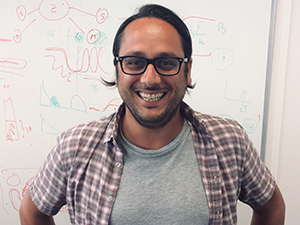The Institute of Cancer Research, London, and The Royal Marsden NHS Foundation Trust have teamed up with Sir Chris Hoy and PureGym to launch a collaboration to encourage men with prostate cancer to be more active.
The partnership was launched today, at a PureGym in Glasgow, by six-time Olympic gold medallist Sir Chris Hoy, PureGym CEO Clive Chesser, and Professor Nick James of the Institute of Cancer Research (ICR) ahead of Sir Chris’s Tour De 4 charity bike ride.
It will see experts at The ICR and The Royal Marsden provide a structured exercise programme, including a free one-year membership at PureGym, for men with advanced prostate cancer on hormone therapy.
Advanced prostate cancer affects around 20,000 men in the UK each year. The main treatment is hormone therapy – side effects include weight gain driven by increase in body fat and muscle loss, fatigue and psychological changes. Long term, these treatments increase the risk of bone thinning, heart disease and diabetes.
Are you on hormone therapy as part of your prostate cancer treatment? You could be suitable for a free PureGym membership and a structured exercise programme.
Exercise can improve quality of life
Research has shown that exercise can result in a better quality of life for men on hormone therapy, with less fatigue, lower body fat and higher muscle mass, and improved bone density. NHS guidelines recommend that men with advanced prostate cancer are offered exercise programmes.
However, few programmes are available, and figures show that around a third of men with advanced prostate cancer are completely inactive and only around one in eight meet guideline levels of activity.
Understanding barriers to exercise
Financial pressures, fatigue, coping with a major illness, and lack of knowledge about how to begin exercising safely, are all recognised as major barriers stopping men with prostate cancer from exercising. This initiative aims to address this.
Professor Nick James, Professor of Prostate and Bladder Cancer Research at The Institute of Cancer Research, London, and Consultant Clinical Oncologist at The Royal Marsden NHS Foundation Trust. He says:
“A diagnosis of advanced cancer is devastating. I frequently hear patients being advised by their families that they must take it easy and not overexert themselves whereas in most cases, this advice, while well-meaning is not usually true. In fact, the opposite is true.
“There is growing evidence that exercise, as well as improving general well-being, might also directly improve cancer outcomes. Some studies have shown that exercising is so effective that if it was a drug, we would call it a ‘breakthrough’. However, while prostate cancer patients may be advised about the importance of exercise, they are rarely supported to actually begin – or simply continue – exercising safely.
“Joining a gym, particularly when you are older and recently diagnosed with a major illness, is clearly a major psychological hurdle. It’s also a financial barrier for many people, so we’re delighted to partner with PureGym to offer men with locally advanced or metastatic prostate cancer who are on hormone therapy this free access to gym facilities. Alongside this, we will provide a structured exercise programme, which can be undertaken at home or in the gym, with the aim of supporting men to build a regular exercise habit that could improve their quality of life and overall health.”
Sir Chris Hoy says:
“This is a groundbreaking partnership and initiative which demonstrates the power of the Tour De 4, what it can achieve and the legacy it will leave.
“Scientific studies have shown that structured exercise is the perfect complement to many cancer treatments, but we need to break down the barriers that often prevent patients getting consistent and regular physical activity to experience these benefits.
“Exercise has been a fundamental part of my life and never more so than since my diagnosis of prostate cancer. I find it hugely encouraging that the importance of exercise for prostate cancer is being recognised. This is a significant step forward and potentially transformative.
“I have a long-standing association with PureGym which, more than any fitness organisation in the UK, has the scale, reach and capability to make a demonstrable national impact. I look forward to seeing the results of this initiative in the coming months and years.”
Clive Chesser CEO of PureGym says:
“Prostate cancer, the most common cancer among men, is a terrible disease with nearly 50k diagnosed with it each year. For a number of reasons many of these men are not as active as they could be and we want this to change, which is why I am delighted to be announcing this partnership, enabled by our national reach and scale as the UK’s largest gym company. We hope that offering free membership to advanced prostate cancer sufferers will enable thousands, across the country, to benefit from regular exercise with expert guidance from The Institute of Cancer Research and The Royal Marsden.
“As Sir Chris Hoy, with whom we have a long association, has so bravely shown staying active is a great way of managing the disease both mentally and physically and we are proud to be supporting him with his vital mission.”
The initiative
Men with locally advanced or metastatic prostate cancer, on hormone therapy, will be eligible for:
- Free one-year PureGym membership
- 26-week exercise programme with videos that can be followed either at home or in the gym, alongside information and resources to support you in your treatment journey.
The exercise programme has been specifically designed for men with prostate cancer that has spread beyond the prostate into the surrounding tissues or has spread to more distant parts of the body. The programme considers fatigue, lower bone density, and risks associated with having prostate cancer that has spread to the bones.
To register your interest in taking part, and for more information, visit icr.ac.uk/puregym
.tmb-propic-md.jpg?Culture=en&sfvrsn=c25d2b2f_9)
 .
.
